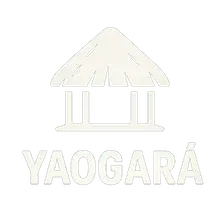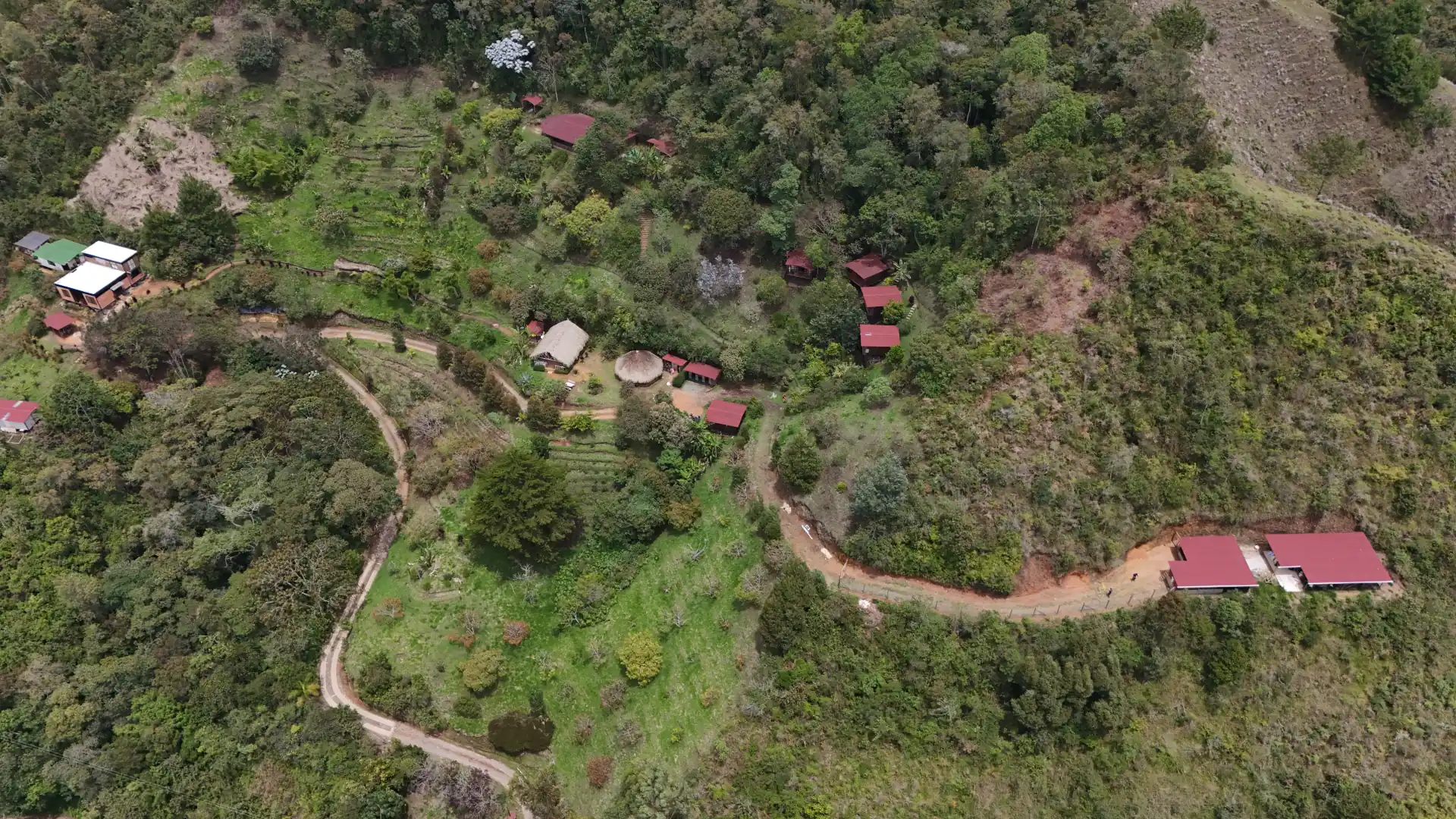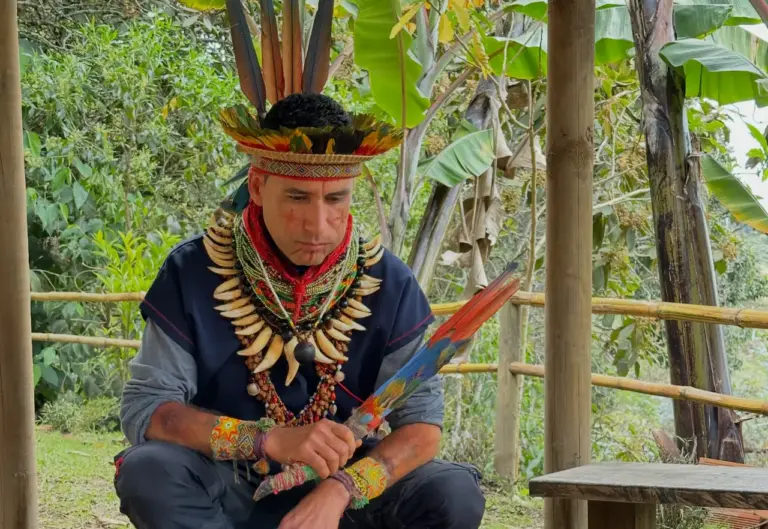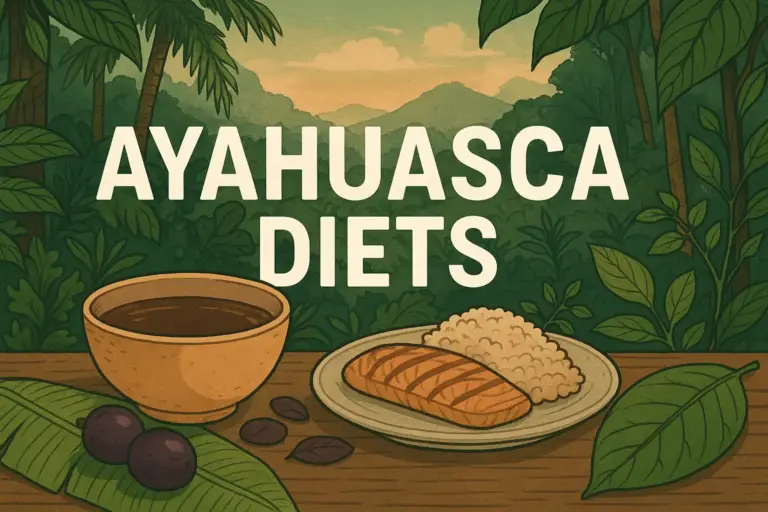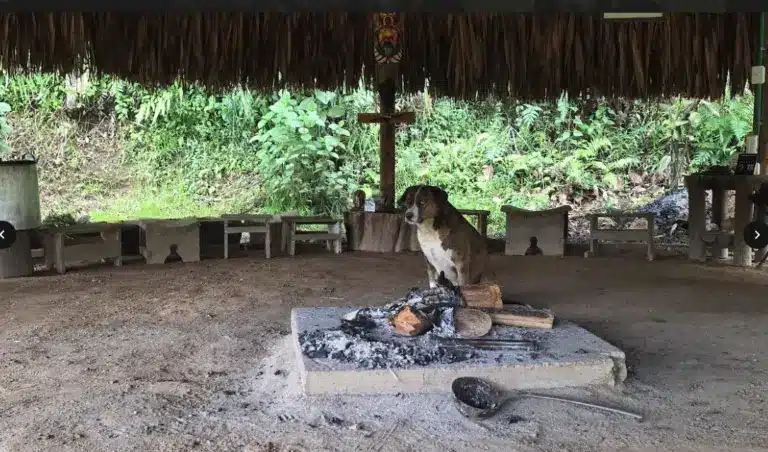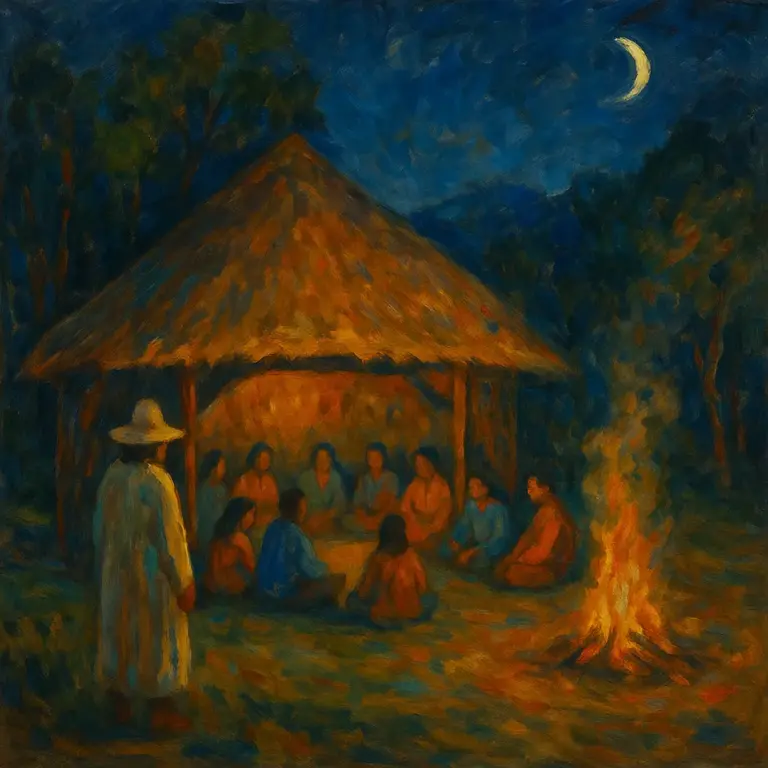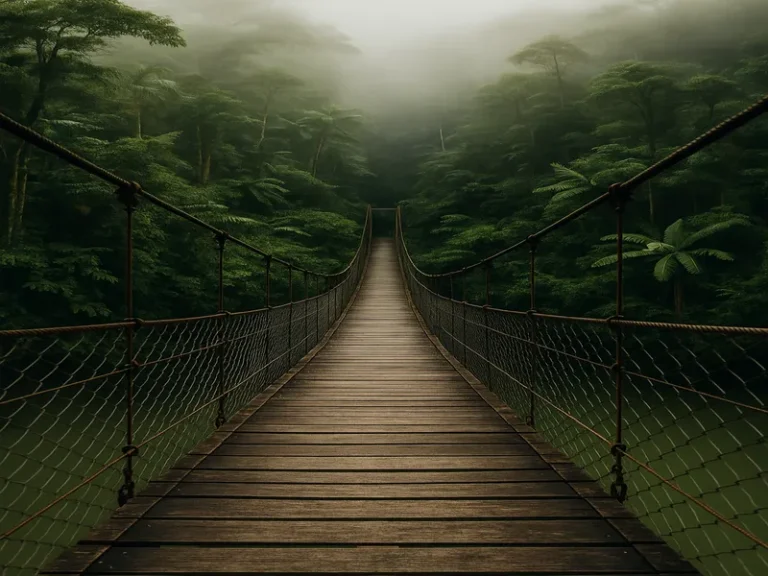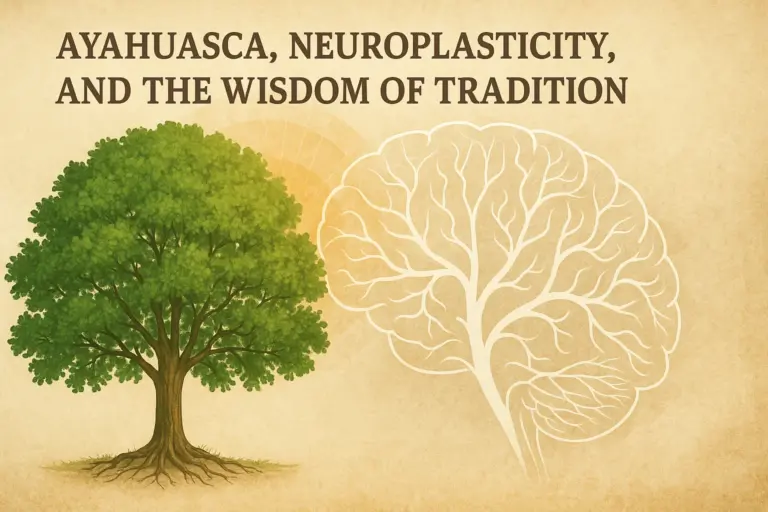How to Choose a Safe Ayahuasca Retreat in Colombia (2025)
The calling to work with ayahuasca—or yagé, as it’s known in Colombia—is profound and sacred. But with that calling comes a responsibility: to approach this ancient medicine with the respect, preparation, and discernment it deserves.
Short on time? If you prefer a vetted option, see our Authentic Ayahuasca Retreat in Colombia for dates, pricing, and safety standards.
Who we are: Yaogará and Camino al Sol are Colombian-owned and operated in Antioquia, working directly with indigenous lineage holders.
If you’re considering an ayahuasca retreat in Colombia, you’re embarking on a journey that has the potential to transform your life. But like any profound experience, it requires careful preparation and, most importantly, choosing a retreat that prioritizes your safety above all else.
This comprehensive guide will walk you through everything you need to know to ensure your ayahuasca experience in Colombia is not only transformative but also safe, ethical, and authentic.
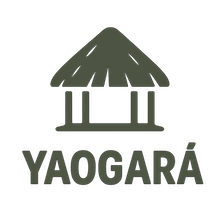
Locally owned & Operated
Yaogará and Camino al Sol are Colombian-owned, rooted in Antioquia, and run by a local team in direct ownership and partnership with indigenous lineage holders.
The calling to work with ayahuasca—or yagé, as it’s known in Colombia—is profound and sacred. But with that calling comes a responsibility: to approach this ancient medicine with the respect, preparation, and discernment it deserves.
What Makes Colombia Special for Ayahuasca?
Colombia is the ancestral home of yagé, where indigenous communities like the Siona, Cofán, and Inga have preserved these sacred traditions for thousands of years. Unlike other South American countries where ayahuasca has become heavily commercialized, Colombia maintains a deeper connection to the original indigenous lineages and their authentic practices.
The Colombian approach to yagé is rooted in relationship—with the plants, the land, the community, and the cosmos. This isn’t about quick fixes or spiritual tourism; it’s about entering into a sacred dialogue with medicine that has guided generations of healers.
At Camino al Sol, we honor this lineage through our partnerships with experienced Taitas from the Siona tribe, ensuring that every ceremony maintains the integrity and safety protocols that have protected practitioners for millennia.
Medellín vs. the Amazon: Which Setting Is Right for You?
Near Medellín
- Short transfers (45–90 min) to quiet Andean nature
- Smaller groups, more individualized care
- Clear logistics, language support, easier integration
- Best for first-timers or time-boxed travelers
Deep Amazon
- Immersive rainforest context & traditional malokas
- Longer travel & rustic conditions
- Often multi-week programs with stricter dietas
- Best for seasoned practitioners seeking immersion
Bottom line: choose the setting that best supports your safety, intention, and integration. Many guests begin in the Medellín area and later explore the Amazon once they understand their process.
Ayahuasca vs Yagé — Same Medicine, Colombian Context
Ayahuasca and yagé refer to the same sacred brew. In Colombia the word yagé is most common, and many lineages prepare it with a strong emphasis on the Banisteriopsis caapi vine and minimal admixtures. You’ll also hear about icaros (healing songs), taitas (traditional healers), and ceremonial protocols specific to Colombian Amazonian traditions. Understanding this terminology helps you search more precisely for a safe ayahuasca (yagé) retreat in Colombia.
The Foundation of Safety: Proper Medical Screening
Understanding Contraindications
Before we discuss anything else, we must address the medical realities of ayahuasca. The plant medicine contains powerful compounds—primarily DMT and harmala alkaloids—that can interact dangerously with certain medications and medical conditions.
Critical Medication Interactions:
- SSRIs and SNRIs: These antidepressants can cause life-threatening serotonin syndrome when combined with ayahuasca.
- MAOIs: Can cause dangerous blood pressure spikes.
- Stimulants: Including ADHD medications and certain weight loss drugs.
- Blood pressure medications: May interact unpredictably with harmala alkaloids.
- Certain antibiotics: Particularly those affecting serotonin.
Medical Conditions Requiring Careful Evaluation:
For a full, medically informed list of contraindications and preparation steps, see our Ayahuasca Safety Guide.
- Heart conditions (especially arrhythmias or recent cardiac events)
- High or low blood pressure
- Liver or kidney disease
- Severe mental health conditions (bipolar disorder, schizophrenia, severe depression with suicidal ideation)
- Pregnancy or breastfeeding
- Recent surgeries or medical procedures
The Importance of Professional Medical Screening
A reputable retreat center will require comprehensive medical screening before accepting you into their program. This isn’t bureaucracy—it’s about protecting your life.
At Camino al Sol, our screening process includes:
- Detailed medical history questionnaire
- Current medication review with our medical advisor
- Consultation with your personal physician when necessary
- Follow-up questions about any concerning conditions
- Clear communication about required medication tapers (always done under medical supervision)
We’ve turned away participants when safety concerns couldn’t be adequately addressed. While disappointing, this commitment to your wellbeing is non-negotiable.
Choosing a Safe Retreat: Red Flags vs. Green Flags
Red Flags That Should Make You Walk Away
Inadequate Medical Screening:
- No medical questionnaire or superficial screening
- Accepting participants on SSRIs without proper medical supervision
- Promising they can “work around” contraindications
- No medical professional on staff or on call
Unqualified Facilitators:
- Self-proclaimed shamans without legitimate lineage
- Facilitators who learned through brief workshops or online courses
- Those who mix ayahuasca with other substances (cannabis, psilocybin, etc.)
- Anyone promising unrealistic outcomes or “cures”
Poor Safety Protocols:
- No trained medical personnel present
- Inadequate participant-to-facilitator ratios (should be maximum 10-12 participants per experienced facilitator)
- No emergency action plan or nearby medical facilities
- Serving excessively large doses, especially to first-time participants
Commercial Red Flags:
- High-pressure sales tactics or “limited time” offers.
- Extremely low prices that seem too good to be true.
- Marketing that focuses more on luxury amenities than safety and authenticity.
- No clear refund or cancellation policy.

Green Flags of a Reputable Retreat
Comprehensive Safety Measures:
- Thorough medical screening with follow-up questions.
- Licensed medical professional on-site or immediately available.
- Clear emergency protocols and proximity to medical facilities.
- Experienced facilitators with verifiable indigenous lineage.
- Transparent about their safety record and protocols.
Authentic Cultural Integration:
- Working directly with indigenous communities
- Paying fair compensation to native healers
- Offering cultural education about the traditions
- Emphasizing respect and reciprocity over consumption
Commitment to Integration:
- Pre-retreat preparation support
- Comprehensive integration programming
- Post-retreat follow-up and community
- Resources for ongoing support
Transparency and Ethics:
- Clear, honest communication about risks and benefits
- Detailed information about facilitators’ backgrounds
- Transparent pricing with no hidden costs
- Genuine testimonials and references available
Support for International & Solo Travelers
For foreigners, look for retreats that include airport pickup, bilingual facilitators, clear WhatsApp communication, and guidance on what to bring. Solo travelers—especially women—often prefer smaller groups, female staff on-site, and private or women-only sleeping areas. These practical details matter as much as lineage and price when evaluating a safe ayahuasca retreat in Colombia.
How Long Should You Stay at an Ayahuasca Retreat?
1–2 nights (weekend): good introduction for first-timers or travelers on a tight schedule; expect 1–2 ceremonies with light integration.
3–5 nights: the most common format in Colombia; two or three ceremonies with a dedicated rest/integration day improve safety, pacing, and insight retention.
7+ nights: deeper work with layered ceremonies and structured integration; recommended for those with prior experience or specific long-term intentions.
When in doubt, prioritize a format that includes screening, rest days, and post-retreat integration rather than maximum ceremony count.
The Physical Safety Infrastructure
Location and Facilities
A safe ayahuasca retreat requires more than just good intentions. The physical infrastructure must support both the ceremonial experience and emergency situations.
Essential Facility Features:
- Clean, comfortable ceremonial spaces with proper ventilation
- Private or semi-private sleeping accommodations
- Clean bathroom facilities easily accessible during ceremonies
- Kitchen facilities for preparing appropriate meals
- Reliable communication systems for emergencies
- Transportation access to medical facilities
Medical Preparedness:
- First aid supplies and equipment on-site
- Trained medical personnel or paramedic available
- Clear protocols for medical emergencies
- Established relationships with local hospitals
- Emergency evacuation plans if needed
Ceremonial Safety Protocols
Before the Ceremony:
- Final health check and medication verification
- Setting intentions and addressing concerns
- Clear communication about what to expect
- Establishment of ceremonial boundaries and protocols
During the Ceremony:
- Continuous monitoring by experienced facilitators
- Medical personnel present throughout
- Proper participant spacing and privacy
- Emergency protocols immediately accessible
- Safe spaces for participants who need additional support
After the Ceremony:
- Gradual re-entry support and monitoring
- Hydration and gentle nutrition guidance
- Integration support and check-ins
- Clear protocols for any concerning symptoms
Preparing Your Body: The Dieta and Physical Preparation
Understanding the Traditional Dieta
The ayahuasca dieta isn’t arbitrary—it’s a time-tested protocol that prepares your body and mind for the medicine. This preparation typically begins 7-14 days before your ceremony and continues throughout your retreat.
Foods to Avoid:
- Red meat and pork
- Fermented foods (cheese, yogurt, sauerkraut)
- Aged or cured meats
- Chocolate and excessive caffeine
- Spicy foods
- Excessive salt and processed foods
- Alcohol (absolutely no alcohol for at least one week prior)
Recommended Foods:
- Fresh fish (in moderation)
- Chicken and turkey
- Fresh fruits and vegetables
- Brown rice and quinoa
- Herbal teas
- Plenty of clean water
Why These Restrictions Matter: The dieta helps prevent dangerous interactions with the harmala alkaloids in ayahuasca, reduces physical discomfort during ceremonies, and creates a cleaner energetic state for the medicine to work.
Best Time of Year for Ayahuasca in Colombia
Medellín & Antioquia: year-round “eternal spring” weather makes retreats accessible in any month; shoulder travel seasons (Feb–May, Sept–Nov) can offer smaller groups and quieter venues.
Amazon regions: rainy seasons can affect river travel, insects, and humidity; confirm logistics and packing lists if you’re heading to Putumayo or Caquetá.
If your priority is comfort and predictable logistics, the Medellín area is the most flexible option across the calendar.
Mental and Emotional Preparation
Physical safety extends beyond medical screening to include psychological preparation.
Setting Intentions:
- Clarify why you’re called to this work
- Identify specific areas for healing or growth
- Release expectations about specific outcomes
- Cultivate openness and surrender
Addressing Fears and Concerns:
- Acknowledge anxiety as normal and healthy
- Discuss concerns with retreat facilitators beforehand
- Consider speaking with past participants
- Prepare for challenging emotions or experiences
During the Retreat: Staying Safe in Ceremony
The Role of Surrender vs. Discernment
One of the most important aspects of ceremonial safety is understanding the balance between surrender and healthy discernment. While openness to the experience is crucial, you should never feel pressured to ignore genuine safety concerns.
When to Speak Up:
- Physical discomfort that feels dangerous (chest pain, difficulty breathing, severe nausea)
- Feeling unsafe due to another participant’s behavior
- Concerns about the facilitator’s conduct
- Need for medical attention or emergency support
Trusting the Process:
- Normal ceremony experiences include nausea, purging, emotional intensity, and altered perception
- Temporary discomfort is often part of the healing process
- The medicine has its own intelligence and timing
- Experienced facilitators can distinguish between normal process and genuine concerns
Integration During the Retreat
Safety doesn’t end when the ceremony concludes. The integration period requires its own safety protocols and support.
Immediate Post-Ceremony Care:
- Gentle re-entry with facilitator support
- Adequate rest and hydration
- Light, appropriate nutrition
- Time for journaling and reflection
- Community sharing when ready
Signs That Require Additional Support:
- Persistent confusion or disorientation
- Severe emotional distress
- Inability to eat or sleep for extended periods
- Thoughts of self-harm
- Disconnection from reality lasting beyond normal integration period
Colombia vs Peru vs Ecuador vs Brazil: Lineage & Logistics Compared
Colombia (Yagé): strong Siona, Cofán, Inga lineages; emphasis on yagé vine-led preparations; accessible venues near Medellín with medical screening and integration. Learn more.
Peru: large retreat ecosystem in Iquitos and Sacred Valley; Shipibo lineages and wider admixture use; more tourism infrastructure. Compare Peru.
Ecuador: Kichwa and Shuar traditions; smaller scene, community-led experiences; options closer to Quito or in the Amazon. Compare Ecuador.
Brazil: syncretic churches (Santo Daime, UDV) and Amazonian traditions; differing legal frameworks and ceremonial styles. Compare Brazil.
Tip: If you want easier access, bilingual support, and small groups, Colombia—especially the Medellín area—is often the best first step; if you want deep jungle immersion, consider Colombia’s Amazon or Peru’s Iquitos after you’ve established your process.
Legal Considerations in Colombia
Current Legal Status
Ayahuasca (yagé) exists in a complex legal space in Colombia. While not explicitly scheduled as a controlled substance, it’s not formally regulated either. The medicine exists in what many consider a legal gray area, with indigenous communities maintaining traditional usage rights.
Key Legal Points:
- Indigenous communities have constitutional protection for traditional plant medicine use
- Tourist participation exists in an unregulated space
- Law enforcement generally doesn’t target legitimate spiritual retreats
- International travel with ayahuasca remains illegal
Protecting Yourself Legally:
- Work only with established, reputable retreat centers
- Ensure your retreat operates transparently with local authorities
- Don’t attempt to transport any plant materials across borders
- Understand that legal protections may be limited for non-indigenous practitioners
Choosing Camino al Sol: Our Commitment to Safety
At Camino al Sol, safety isn’t an afterthought—it’s the foundation upon which every aspect of our retreat is built. Our approach to safety encompasses medical, psychological, cultural, and spiritual dimensions.
Who we are: Camino al Sol and Yaogará are locally owned and operated in Colombia. Our team is based in Antioquia and collaborates directly with Siona taitas to maintain both cultural integrity and world-class safety. Read more about our story and philosophy here.
Our Safety Protocols
Medical Excellence:
- Comprehensive screening with follow-up by medical professionals
- Licensed doctor on-site during all ceremonies*
- Established relationships with local medical facilities
- Emergency protocols practiced regularly by all staff
Cultural Authenticity:
- Local stewardship: Colombian-owned and staffed operations with long-term relationships in the territory.
- Fair compensation and reciprocity with indigenous communities and our elders
- Respect for traditional protocols and timing
- Ongoing cultural education for all participants
Psychological Support:
- Experienced integration facilitators trained in trauma-informed care
- Small group sizes ensuring adequate attention for each participant
- Pre-retreat preparation calls and post-retreat follow-up
- Access to ongoing integration support and community
Our Experienced Team
Our facilitators bring together indigenous wisdom and modern safety protocols:
Indigenous Lineage Holders:
- Taitas from the Siona tribe with multi-generational plant medicine training
- Deep understanding of traditional safety protocols
- Ability to navigate challenging ceremonial situations with wisdom and skill
Integration Specialists:
- Facilitators thousands of combined hours experience of facilitating retreats with locals and foreigners and guiding them through the process
- Trauma-informed care approaches
- Understanding of the intersection between indigenous wisdom and modern therapeutic modalities
Medical Support:
- Licensed medical professionals with experience in plant medicine contexts
- Emergency medical training and equipment
- Established protocols for various medical scenarios
Beyond Safety: The Deeper Call
While safety is paramount, it’s important to remember that the call to work with ayahuasca often arises from a deep knowing that transcends rational decision-making. The medicine has its own intelligence, and when approached with proper respect, preparation, and safety protocols, it can facilitate profound healing and transformation.
The goal isn’t to eliminate all risk—that would be impossible and would also eliminate the transformative potential of the work. Rather, the goal is to minimize unnecessary risks while creating a container strong enough to hold whatever the medicine needs to show you.
What Safety Really Means in Sacred Work
True safety in ayahuasca work goes beyond physical protocols. It encompasses:
Emotional Safety:
- Being held in a container of love and acceptance
- Freedom to experience whatever arises without judgment
- Support for processing difficult emotions or memories
- Respect for your individual process and timing
Spiritual Safety:
- Connection to authentic lineage and tradition
- Protection by experienced practitioners who understand the spiritual dimensions of the work
- Respect for the sacred nature of the experience
- Integration support that honors your spiritual insights
Cultural Safety:
- Ethical engagement with indigenous traditions
- Fair reciprocity with traditional knowledge holders
- Education about the cultural context of the medicine
- Respect for the ceremonial protocols that protect practitioners
Making Your Decision: A Checklist for Safe Retreat Selection
Before committing to any ayahuasca retreat in Colombia, use this checklist to evaluate safety standards:
Medical Safety:
- Comprehensive medical screening required
- Clear protocols for medication interactions
- Medical professional on-site or immediately available
- Emergency action plans established
- Access to local medical facilities confirmed
Facilitator Qualifications:
- Verifiable indigenous lineage or authentic training
- Years of experience with ayahuasca facilitation
- Positive references from past participants
- Transparent about their background and training
- Demonstrates cultural respect and reciprocity
Retreat Infrastructure:
- Safe, clean facilities appropriate for ceremonies
- Proper participant-to-facilitator ratios
- Clear communication and emergency protocols
- Integration support included
- Post-retreat follow-up available
Ethical Standards:
- Transparent pricing and policies
- Fair treatment of indigenous partners
- Realistic expectations about outcomes
- Commitment to participant wellbeing over profit
- Clear refund and cancellation policies
Integration: Where Safety Continues
The safety of your ayahuasca experience doesn’t end when you leave Colombia. In many ways, the integration period requires its own safety protocols and support systems.
Creating a Safe Integration Plan
Immediate Integration (First 30 Days):
- Gentle re-entry to daily life
- Adequate rest and proper nutrition
- Journaling and reflection practices
- Limited major decisions or life changes
- Connection with integration community or therapist
Long-term Integration (Months and Years):
- Ongoing practices that support your insights
- Regular check-ins with integration support
- Gradual implementation of any life changes
- Continued connection with plant medicine community
- Professional support when needed
When to Seek Additional Support
Sometimes the integration process reveals the need for additional professional support. This isn’t a sign of failure—it’s a sign of wisdom and self-care.
Consider Professional Support If:
- Integration challenges persist beyond normal adjustment period
- Previous trauma surfaces requiring specialized care
- Major life changes feel overwhelming
- Relationships are significantly impacted
- Mental health concerns arise or persist
Your Journey Begins with Safety
The path of plant medicine is profound, transformative, and sacred. It’s also serious work that requires proper preparation, authentic guidance, and comprehensive safety protocols.
At Camino al Sol, we’ve created a container that honors both the transformative potential of yagé and your fundamental right to safety throughout the process. Our commitment extends beyond the ceremonies themselves to encompass every aspect of your journey—from initial screening through long-term integration support.
If you feel the call to work with ayahuasca in Colombia, we invite you to prioritize safety in your selection process. Your future self will thank you for taking the time to choose wisely.
The medicine has been calling people to healing for thousands of years. When approached with proper respect, preparation, and safety protocols, that calling can lead to profound transformation. But it all begins with making choices that honor both the power of the medicine and the preciousness of your life.
Your journey toward healing and transformation awaits—and it begins with choosing safety, authenticity, and respect for this ancient path of wisdom.
Medical disclaimer: The information on this page is for educational purposes only and is not a substitute for professional medical advice. Always consult your physician before making changes to medications or participating in ceremony.
Ready to learn more about a safe, authentic ayahuasca experience in Colombia? Contact Camino al Sol to speak with our team about your individual needs and how we can support your journey with the highest safety standards and deepest respect for the traditions that guide this sacred work.
*Doctor presence depends on individual schedules; if not present, our experienced and professional facilitators are always on site
